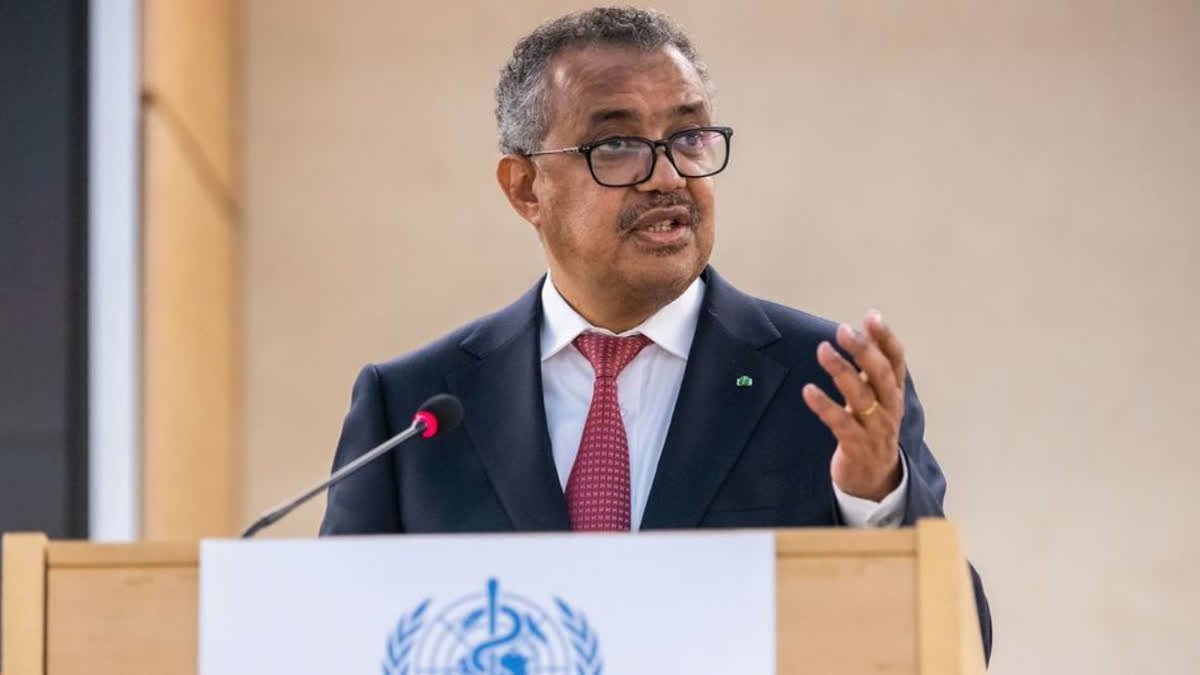Hyderabad: While delivering his report at the 76th World Health Assembly, WHO chief Tedros Adhanom Ghebreyesus stated “The end of COVID-19 as a global health emergency is not the end of COVID-19 as a global health threat,” to the member states. He added that “The threat of another variant emerging that causes new surges of disease and death remains, and the threat of another pathogen emerging with even deadlier potential remains.”
According to Ghebreyesus, pandemics are far from the only threat that human beings face, and with the overlapping of converging crises, he highlighted the importance and need for effective global mechanisms that address and respond to emergencies of all kinds. “When the next pandemic comes knocking – and it will – we must be ready to answer decisively, collectively, and equitably,” he advised.
According to Ghebreyesus, COVID-19 had significant implications for health-related targets under the Sustainable Development Goals (SDGs), which have a deadline of 2030. The pandemic also affected the progress towards the Triple Billion targets, which were announced at the 2017 World Health Assembly. Ghebreyesus added "The five-year initiative calls for ensuring one billion more people have universal health coverage, a billion more are better protected from health emergencies, and another billion more enjoy better health and well-being."
According to Ghebreyesus's report countries have made progress on universal health coverage, with some 477 million people now benefitting. But, he further warned that "If current trends continue, fewer than half the world’s people will be covered by the end of the decade, meaning we must at least double the pace”.
Also read: Covid-19 no longer a public health emergency: WHO
He stated that Covid-19 was an indicator that eight billion people, which is the entire population of the world, need to be better protected in emergencies. “The pandemic has blown us off course, but it has shown us why the SDGs must remain our north star, and why we must pursue them with the same urgency and determination with which we countered the pandemic,” he added.
Ghebreyesus also highlighted several achievements that have been made over the past year in what he called the “five Ps”: promoting, providing, protecting, powering, and performing for health. He appreciated countries' efforts to promote health and prevent diseases by introducing new taxes on products that harm health, such as tobacco and sugary drinks between 2017 and 2022.
“We also see encouraging progress in eliminating industrially-produced trans-fat from the global food supply,” he said. “Many countries have also made impressive progress in reducing salt intake, a leading risk factor for cardiovascular disease”. Ghebreyesus also noted that with the end of COVID-19 and mpox as global public health emergencies, only polio now remains. He stressed that WHO and partners “remain steadfastly committed to finishing the job of consigning polio to history”.
Ghebreyesus concluded by urging countries to “pick up the pace of progress” on the Triple Billion and health-related SDG targets and called for an urgent and constructive negotiation on the new global pandemic accord and the International Health Regulations (IHR), the treaty that governs preparedness and response to health emergencies so that the world will never again have to face the devastation of a pandemic like COVID-19.



